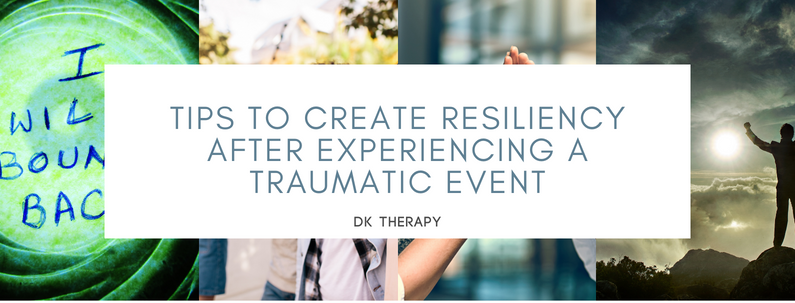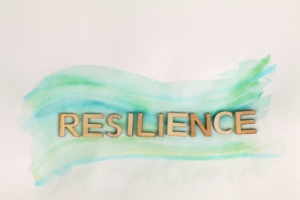
It can be difficult for people to heal after experiencing a traumatic event.
Traumas of any size, whether they would be considered “Big T” Traumas or a “Small T” traumas, shape the people who experience them, causing them to wrestle with a variety of emotions including fear, shame, pain, and depression.
To keep themselves from feeling these tough emotions and prevent themselves from going through additional traumatic events, many people who have experienced a traumatic event build a membrane around themselves for protection.
While this can feel helpful in the moment, it can also cause people to block out the help they need to recover from their trauma.
If you have gone through a traumatic event of any kind, you might not feel like you are able to move on from this event or risk opening yourself to others.
However, it is important to remember that you are more resilient than you might think and recognize that there are steps you can take to build resilience. As you arm yourself with coping strategies and develop your resilience, you will find that you will have an easier time moving forward after a hard experience.
Here are a few strategies you can use to help yourself overcome a traumatic event:
Seek out social supports
Being resilient does not mean that you have to do everything on your own. Finding a trusted friend, family member, or therapist to help you can make a world of difference.
Working with the right therapist will be helpful because they have the experience and expertise necessary to show you useful coping strategies to help you navigate these difficult times. Your therapist will also be able to listen to you without judgment, giving you the space to explore your feelings honestly.
If you are having a hard time, reach out to your support system. Let them know if you are having nightmares, struggling to focus, or feeling depressed. Sometimes just the act of sharing your struggles with others can make heavy emotions feel lighter and help you feel less alone.
Listen to your body
Sometimes your negative thoughts and feelings will feel inescapable. During these times, it is important that you are listening to your body and what it needs.
Maybe you are feeling especially anxious because you haven’t been receiving enough rest at night. You might be feeling extra tired and irritable because you are dehydrated.
If you aren’t receiving proper nutrition, staying hydrated, and getting adequate sleep, you are going to exacerbate your negative feelings. You also won’t be as well equipped to heal from your trauma and combat negative emotions that come your way.
One of the best ways for you to start being more attuned to your body is to adopt some mindfulness practices like meditation, journaling, or yoga. You can also use technology to your advantage by setting alerts on your phone to remind you to take deep breaths, drink water, and start your bedtime routine.
As checking in with yourself and taking care of yourself becomes a habit, you will find that you have more strength and energy to face any struggles that come your way.
Exercise
Getting regular exercise can help you alleviate stress, reduce feelings of depression, increase your energy levels, and improve your quality of life.
When at all possible, make time to exercise every single day. Going for a walk, playing a pick up game of basketball, or jumping rope long enough to get your heart rate up will release endorphins that will make a significant impact on your ability to cope with your trauma.
If you can, try to go outside when you exercise. This will allow you to get vitamin d while you reap the benefits of exercise.
When you feel yourself experiencing negative symptoms or emotions from your traumatic experience, exercise and movement can help.
While you may not be able to drop everything and go exercise at the moment, you can try standing up and stretching, taking a short walk around your office, or doing a couple of jumping jacks.
These small actions can make a big difference when you are starting to feel overwhelmed, anxious, and stressed.
Come up with a list of activities, big or small, that you can try each day to help manage your negative feelings and increase your resilience.
Do something you’re good at
While this might seem like an odd tip, doing an activity that you have mastered will help create a sense of purpose, increase your confidence in your abilities, and remind you that you have accomplished difficult things before, so you can do it again.
Are you good at playing the guitar? Playing a complicated piece on an instrument takes time, effort, and dedication, so if you are able to do this well, it shows that you have what it takes to overcome challenges and come out on top.
Whether you are a master craftsman or a talented musician or you have any other special talent or ability, engaging in these activities can help build your resilience, give you the endorphins from experiencing flow, and provide you with the confidence you need to make it through another day.
If you find yourself struggling after experiencing a traumatic event, reaching out to others, taking care of your body, exercising, and engaging in activities that you enjoy and can complete skillfully will help you manage the challenges that come your way.





